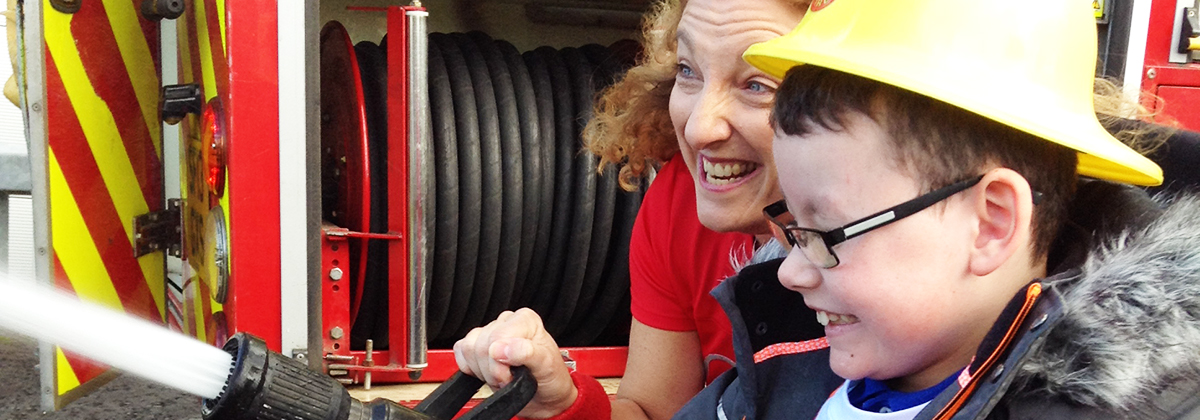Children with cerebral palsy may need additional help and support to participate fully in everyday play and learning at nursery and school.
But whatever their support needs are, every child with cerebral palsy is entitled to the help and equipment they need in school to allow them to achieve their potential.
Many children with CP will thrive in mainstream schooling, while others may benefit from being in specialised surroundings. Wherever your child goes to school, careful planning and ongoing coordinated support from educators, therapists and other professionals is essential to them successfully learning and participating.
Planning and coordination are especially important as a child transitions to, or between, educational settings - for example when starting nursery, or moving from nursery to primary school.
Nursery
What can be achieved?
Communication: Your child needs to be understood if they are to be a successful learner. Focused therapy can help familiarise your child with alternative or augmentative methods of communication (AAC) for example, Makaton signing, using symbols in a communication book, eye pointing or eye gaze technology
Equipment: Your physiotherapist and occupational therapist can visit the early years setting and see what strategies and support your child will need to maximise their active participation in class eg supportive seating in the classroom, adapted trike for playtime.
Mobility: Therapists can look at what activities the child is doing and how to adapt these to maximise active participation e.g. positioning during ‘circle time’ on the floor, how will they move about safely in the class.
Balance: Another goal might be standing long enough to take trousers up and down when going to the toilet.
Fine motor skills: Or learning to use a pair of scissors or hold a pen comfortably.
Cooper's story
Cooper was born with quadriplegic cerebral palsy. Find out about how Cooper and his twin brother Lewis prepared to start nursery.
Primary
Going from nursery to primary school is a big step for a child (and their parents!). Research has shown that parents worry about the progress of their child at all stages, but the transition into primary school is especially concerning as it may be the first time they have been separated. Here are some things to think about as you plan your child’s next step.
What can be achieved?
Communication: In school, a child may have to do more talking. A plan can be put in place to enable them to communicate or record their learning without becoming too tired e.g. using an AAC device or using adaptive technology.
Balance and gross motor skills: Therapy can help work on balance, or gross motor skills to be able to stand and pull trousers up and down to go to the toilet, change shoes and splits or get ready for PE.
Fine motor skills: Strengthening exercises can make holding a pen or using scissors easier.
Melissa’s story
Find out how Melissa’s mum approached the transition to primary school.
Ciaran’s story
Read about how Ciaran is managing the transition to primary.
Secondary
Going to an even bigger school can present a different set of challenges for those with mobility issues. The different environment can include longer walks to get to different classes, negotiating more stairs, and a noisier environment in which to make yourself heard. However, these are all challenges that can be overcome with the right strategies and support systems in place.
At this stage of development privacy also becomes more important to a child. Therapy can focus on specific goals such as learning to stand safely in toilets with no wall bars, changing into PE kit and showering safely after sports activities.
What can be achieved?
A child’s muscles can get tighter as they get heavier. Secondary school can be tiring not only physically, but also psychologically. How will they use their energy? For example, it might be best for a child to use a wheelchair for longer journeys to other classrooms and save walking for the classroom. Some children may be reticent to change behaviour as they see it as a step backwards, it’s often about helping them to see that they need to save their energy for important tasks.
Rachel’s story
Find out how Rachel’s mum helped her prepare for secondary school.
Where to go for more information
Enquire is the Scottish advice service for additional support for learning. Their mission is to:
- raise awareness of children’s rights to extra support in school
- help families and schools work together to ensure children get the support they need
- provide advice to children and young people who might be struggling in school
